Queer Theology
Queer* theology is not proving that queer people are acceptable and able to be a part of/participate in the kin-dom of God.
Queer theology:
begins with the assumption that gender variance and queer desire have always been present in human history, including faith traditions and their sacred texts such as the Jewish Scriptures and the Bible.
is theology done by, with, and for LGBTQIA+ individuals focusing on their specic needs as stated by persons identifying within the LGBTQIA+ community.
is theology that purposefully opposes xed social and cultural norms regarding gender and sexuality. It seeks to bring equitable value to marginalized voices, experiences, and perspectives.
is theology that challenges and deconstructs harmful and historically imposed boundaries, particularly with respect to sexual and gender identity.
According to Jennifer Purvis, "queer" signifies not only a range of variant genders and non-heterosexual sexualities, but a posture of resistance, questioning attitude, and a set of techniques and approaches. For that reason, queer theology calls for thinking beyond what may be known, disciplined and controlled and asks us to re-embrace our queer cognizance.
Words like “transgressive” and “subversive” are often associated with queerness, and queer theology specically. It is a recognition that queerness exists in opposition to the systems that have created harm to marginalized and oppressed beings (queer and non-queer). The “right” way has not been Good News for many throughout history. Queerness knows this and suggests theology that challenges us to consider God’s movement against powers that perpetuate this harm.
*Within queer theory the word queer can be used in three different ways: as an umbrella term used for anyone in the LGBTQIA+ community, as transgressive action, as erasing boundaries.
Resources:
Outside the Lines: How Embracing Queerness will Transform Your Faith by Mihee Kim Kort
Queer Theology by Linn Marie Tonstad
Radical Love: An Introduction to Queer Theology by Patrick S. Cheng

